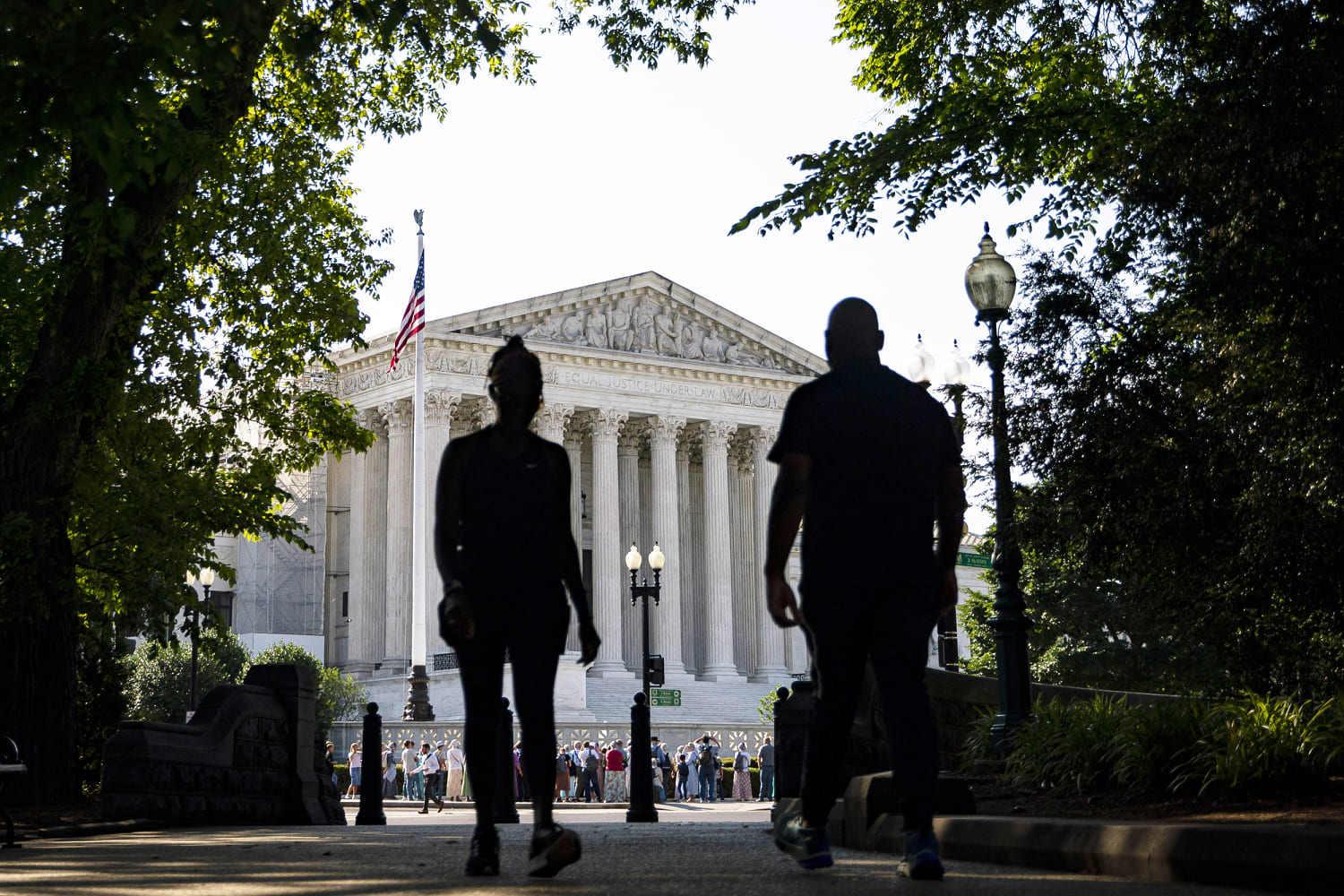
WASHINGTON — The Supreme Court on Monday rejected over the objections of three conservative justices a Christian therapist’s free speech challenge to a Washington state ban on so-called conversion therapy aimed at changing a child’s sexual orientation or gender identity.
Favored by some conservatives, the widely criticized practice is aimed at encouraging gay or lesbian minors to change their sexual orientation and transgender children to identify as the gender identity assigned to them at birth. Washington is one of 26 states that have barred or restricted such therapy for minors, the state’s lawyers say.
The court’s decision not to take up the case means the law remains intact.
“This is a victory for LGBTQ+ civil rights. The research is clear — conversion therapy does not work, and can be particularly harmful to minors,” Washington Attorney General Bob Ferguson said in a statement.
Justices Clarence Thomas, Samuel Alito and Brett Kavanaugh all said they would have heard the appeal.
Thomas wrote that there is “a fierce public debate over how best to help minors with gender dysphoria” and that the state had “silenced one side of this debate.”
In a separate brief opinion, Alito said that the case “presents a question of national importance” that clearly implicates free speech issues.
Brian Tingley, a licensed marriage and family counselor, said the law violates his free speech rights under the Constitution’s First Amendment because the government is seeking to dictate what he says
“The law clearly violates the First Amendment by censoring counselors like Brian, and that ultimately hurts his clients,” said John Bursch, a lawyer at Alliance Defending Freedom, a conservative Christian legal group that represents Tingley.
Tingley, his lawyers said in court papers “believes that the sex each person receives at conception is not an accident or error but rather a gift from God” and that sexual relationships should only occur “between one man and one woman mutually committed through marriage.”
He openly markets his business on those grounds, serving clients who “want to become comfortable with their biological sex” or seek “help to direct their focus to opposite-sex relationship,” the lawyers add.
The Alliance Defending Freedom has had recent success arguing religious rights and related cases at the court.
Washington Attorney General Robert Ferguson, defending the law, said in court papers that it was not a pressing issue considering that Tingley is the only licensed therapist in the state who has objected to the law.
The state argued that the law, enacted in 2018, regulates only conduct as part of a professional licensing requirement and only has an incidental impact on speech rights.
The law only prevents licensed therapists from conducting conversion therapy in a professional setting, Ferguson added, noting that it does not prevent similar counseling taking place in other settings, including churches.
The challengers also asked the Supreme Court to overturn a landmark ruling by the court from 1990, Employment Division v. Smith, in which the court found that religious exemptions are not typically available if a law applies equally to everyone. In the aftermath of that ruling, Congress enacted the Religious Freedom Restoration Act, which allows people to bring such claims against the federal government, but that law does not apply to states.
The court in 2021 declined to overturn the 1990 precedent, although three conservatives justices said they would have.
The Supreme Court has previously turned down challenges to similar conversion therapy restrictions in other states, but in recent years the court’s conservative majority has been strengthened, giving that bloc a solid 6-3 majority.
Lower courts have generally upheld local laws, but Tingley’s lawyers pointed to a 2020 ruling by the Atlanta-based 11th U.S. Circuit Court of Appeals that struck down similar measures enacted by jurisdictions in Florida to show that there are differing views on the issue.
They also cited the Supreme Court’s own 2018 ruling that struck down on free speech grounds a California law that required anti-abortion pregnancy clinics to notify clients about abortion access.
Signup bonus from





